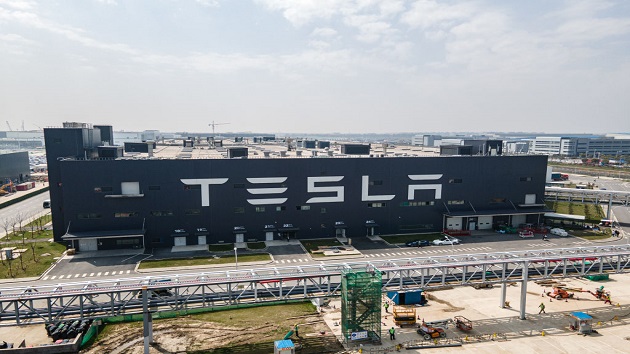(NEW YORK) — Tesla, the Elon Musk-led electric vehicle company, appears desperate for a tune-up.
The company’s share price has plummeted more than 25% so far this year, making it one of the worst-performing stocks in the S&P 500. Over the same period, that index has risen about 10%.
Shrinking car sales, major setbacks in autonomous driving and increased competition have cost the company more than $200 billion in lost market value in less than four months.
Analysts who spoke to ABC News differed on whether the company would ever recover those losses.
Critics say demand for the company’s cars has slowed as a result of its failure to release a new, affordable model, as well as a chill in the overall EV market. As competitors roll out alternatives, Tesla faces a difficult path to regain its previous breakneck growth.
Proponents, however, point to the company’s record of industry-leading innovation, suggesting the breakthroughs that fueled its sprint ahead of the competition could reemerge as it readies for new EV models and perfects its autonomous driving software.
“Tesla has been here before but this is a code red,” Dan Ives, a managing director of equity research at the investment firm Wedbush, a longtime Tesla bull, told ABC News.
Tesla did not immediately respond to ABC News’ request for comment.
Last week, Tesla reported a significant decline in car sales over the first three months of 2024. The company delivered 387,000 cars over that period, marking a 20% decline from the previous quarter and an 8% decline year-over-year, an earnings report showed. The results fell well short of Wall Street expectations.
In a statement that day, the company attributed the sluggish performance to preparation for production of a forthcoming version of its Model 3, as well as shipping delays in the Red Sea and an alleged arson attack at its Berlin factory.
Gordon Johnson, CEO and founder of data firm GLJ Research, who is bearish on Tesla, said consumer demand for the company’s cars has fallen sharply from the heights attained during the pandemic.
At that time, a major shortage in the worldwide supply of auto parts ultimately benefited Tesla since the company streamlined production and outperformed hamstrung competitors, Johnson said.
“Tesla had cars available when the auto industry writ large globally did not,” Johnson told ABC News.
Once supply blockages eased, competitors ramped up production and rolled out new EV models. The glut of alternative options has coincided with a slowdown of overall consumer demand for EVs, Johnson said.
“Tesla has more capacity than there is demand for its cars,” Johnson added. “That’s the reason why it’s struggling.”
Over the past year, Tesla has discounted some of its models in an effort to goose up demand. Analysts who spoke to ABC News said Tesla would need to release a newer, low-cost model as a means of attracting thrifty spenders.
According to a Reuters report last week, however, the company dropped plans for a low-cost model to be priced at about $25,000. Musk refuted the report in a post on X hours after the story was published.
“They need a sub-$30,000 vehicle sooner rather than later,” Ives said.
Boosters of the company’s potential for long-term growth point to its autonomous driving software, but that product has faced challenges of its own. In December, Tesla recalled about 2 million cars over a safety issue tied to its autopilot system. Two months later, the company recalled about 360,000 more cars over crash risks tied to its self-driving system.
In response to a letter from members of Congress calling for an investigation of the self-driving system, Tesla senior director of public policy, Rohan Patel, said last March: “Tesla’s Autopilot and FSD Capability features enhance the ability of our cusotmes [sic] to drive safer than the average driver in the U.S.” The response was first reported by Reuters.
Looking ahead, analysts said Tesla retains a path to recovery but it remains unclear whether the firm can achieve it.
“In order for the stock to appreciate, we need sales to reaccelerate and for the full self-driving to start seeing greater adoption,” Craig Irwin, a senior research analyst at Roth MKM, told ABC News. “Call me a skeptic.”
Gordon said he expects the company’s outlook to worsen, since declining sales revenue and persistent costs could force the company to fill a potential budget gap with an injection of outside funds. “That will scare the bejesus out of Tesla bulls,” Johnson said.
For Ives, the current crisis at Tesla marks an opportunity for the company to innovate and recapture its previous era of remarkable growth.
“I believe they can get through it, but this is a white-knuckle period,” Ives said.
Copyright © 2024, ABC Audio. All rights reserved.


